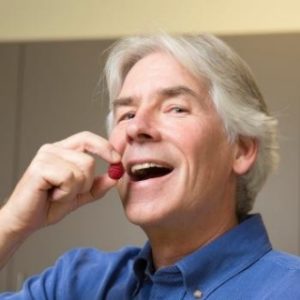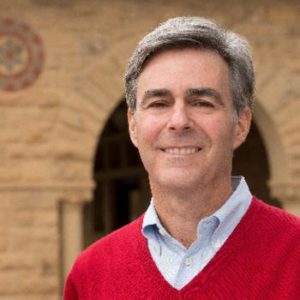Stanford’s Christopher Gardner and Thomas Robinson find that pursuing social good motivates healthy living
Many Americans know they should eat lighter, exercise more and choose healthier foods – but they don’t always act on that information. Why not?
Two professors in the School of Medicine’s Stanford Prevention Research Center, Christopher Gardner and Thomas Robinson, believe the answer lies in finding better ways to motivate healthy behavior.

Gardner, a nutrition scientist, and Robinson, a pediatrician, circumvent people’s dislike of self-denial and their fear of failure by focusing on the social good that accrues when individuals make healthy choices. They devise healthy-living programs pitched to people’s cultural pride, sense of social justice and desire to protect the environment – and only secondarily, if at all, to personal health.
Although weight loss or other health changes aren’t these programs’ stated goals, data indicate that participants do have better health checkups and lab results than those in traditional classes.
Gardner calls the approach “stealth health.”

“When people get involved in social movements, it changes their behavior more dramatically than what we’ve seen with more cognitive-based approaches,” Robinson told a reporter for Stanford Medicine.
“We’re thinking about what is most motivating to them and having them pursue those goals, with better health tagging along as a side effect.”
They’ve studied how day camps held in community gardens prompt kids to eat more vegetables. They’ve learned how after-school dance programs cut girls’ risk of obesity and diabetes by focusing on the pride that comes from learning dances of their communities of cultural origin.
Gardner and Robinson have worked to enhance Stanford students’ health as well.
Gardner helped design the Menus of Change University Research Collaborative, led by Stanford and the Culinary Institute of America to further healthy, plant-based eating at 37 campuses nationwide through research and institutional practice.
Each winter, the pair teaches a Stanford undergraduate course, HumBio 166, Food and Society, that examines the social, environmental and policy consequences of dietary choices. They’re also piloting the course in community college to see if its format will succeed beyond Stanford.
